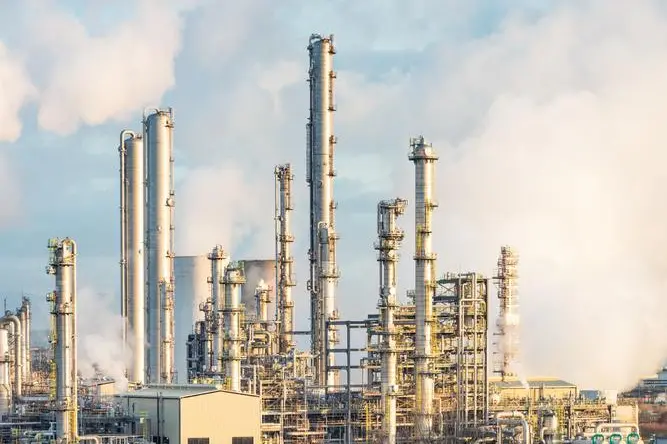PHOTO
The coronavirus pandemic and the oil price shock threaten earnings of GCC insurers, possibly leading to negative rating actions in 2020, S&P Global Ratings said in a report.
"Most insurers we rate in the GCC region benefit from robust capital buffers and should be able to absorb COVID-19-related claims and capital market volatility," Emir Mujkic, S&P Global Ratings credit analyst said.
"However, the significant fall in equity markets, widening bond spreads, and ongoing decline in real estate prices will damage earnings and capital buffers of insurers with material exposure to these asset classes," Mujkic said.
S&P notes that it is still too early to assess the full financial impact that COVID-19 will have on the insurance sector in the GCC given that the situation is still rapidly evolving.
GCC stock markets plunged last month following a slump in global markets as uncertainty triggered by the outbreak of the coronavirus weighed on investor sentiment. The number of infections continues to rise unabated, climbing to more than 800,000 worldwide.
Gulf countries and many countries in the world implemented a series of precautionary measures to stem the spread of the coronavirus, like shutting down schools, malls, cafes, restaurants and temporarily cancelling passenger flights.
S&P believes that the measures adopted to contain the virus, including travel bans and curfews, have pushed the global economy into recession.
A raft of economic stimulus packages, amounting to billions of dollars, have also been unveiled recently by GCC governments to fight the crisis.
According to the ratings agency, the expected slowdown in premium collections, as many businesses try to delay their premium payments in an attempt to survive, could put further stress on liquidity, asset quality, and consequently on credit conditions for insurers over the coming months.
"This could lead to some negative rating actions in 2020, particularly on insurers that have thin capital buffers," Mujkic said.
Economies in the Gulf have also been hit by a plunge in oil prices according to the S&P report.
In March, the Organisation of Petroleum Exporting Countries (OPEC) failed to strike a deal with its allies, led by Russia, on oil production cuts, which effectively means that members can now pump as much as they can starting April 1.
Saudi Arabia slashed crude prices for April and planned output hikes after Russia refused to support deeper oil production cuts.
Brent Crude oil prices plunged as a reaction to the news and was last trading near the $23 per barrel level at the end of March, down from the $51 per barrel level recorded at the beginning of the month.
S&P said that lower oil prices will have a negative impact on many sovereigns, including their balance of payments, fiscal revenues, and GDP growth.
GWP to decline in 2020
Gross written premiums (GWP) will decline in most GCC markets this year due to a sharp drop expected in consumer spending and economic activity, S&P said.
A slowdown in economic activity and mergers and acquisitions consolidation in a number of sectors in the Gulf has already led to job cuts and cost-saving measures in recent years. S&P expects the trend to continue and possibly further accelerate in the coming months if the current lockdown related to COVID-19 persists for an extended period of time and if oil prices remain at a low level.
“We anticipate that the number of insured individuals under medical policies will decline and that some employers will opt for more basic and cheaper cover for their employees in an effort to save costs,” the report said.
Insurers in the GCC still generate the majority of their sales through branches, agents, and brokers. Many insurers are likely to see a slowdown in sales as measures have restricted face-to-face interaction.
COVID-19 claims costs will be limited
A rising number of patients have sought medical treatment in hospitals as the total number of coronavirus cases in the GCC exceeded 3,700 by March 31.
S&P notes however that medical costs relating to the diagnosis and treatment of COVID-19 will be partially or even fully covered by governments in the region.
“We believe the main increase in insurance claims related to COVID-19 will be under medical policies if the costs are not covered by the government (as is currently the case in Dubai) or if policyholders are seeking treatment abroad,” the note said.
The ratings agency also expects the impact on insurers from business-interruption claims to be limited because only a small number of reinsurers or primary insurers in the region write this type of cover.
The number of hospitals and medical center visits for non-urgent treatment has declined as people drive less frequently and work from home.
“This should lead to fewer medical and motor claims, and may offset an increase in any COVID-19-related medical claims costs,” the note said.
(Reporting by Gerard Aoun; editing by Seban Scaria)
#Oil #Insurance #S&P #GCC #Coronavirus
Disclaimer: This article is provided for informational purposes only. The content does not provide tax, legal or investment advice or opinion regarding the suitability, value or profitability of any particular security, portfolio or investment strategy. Read our full disclaimer policy here.
© ZAWYA 2020





















